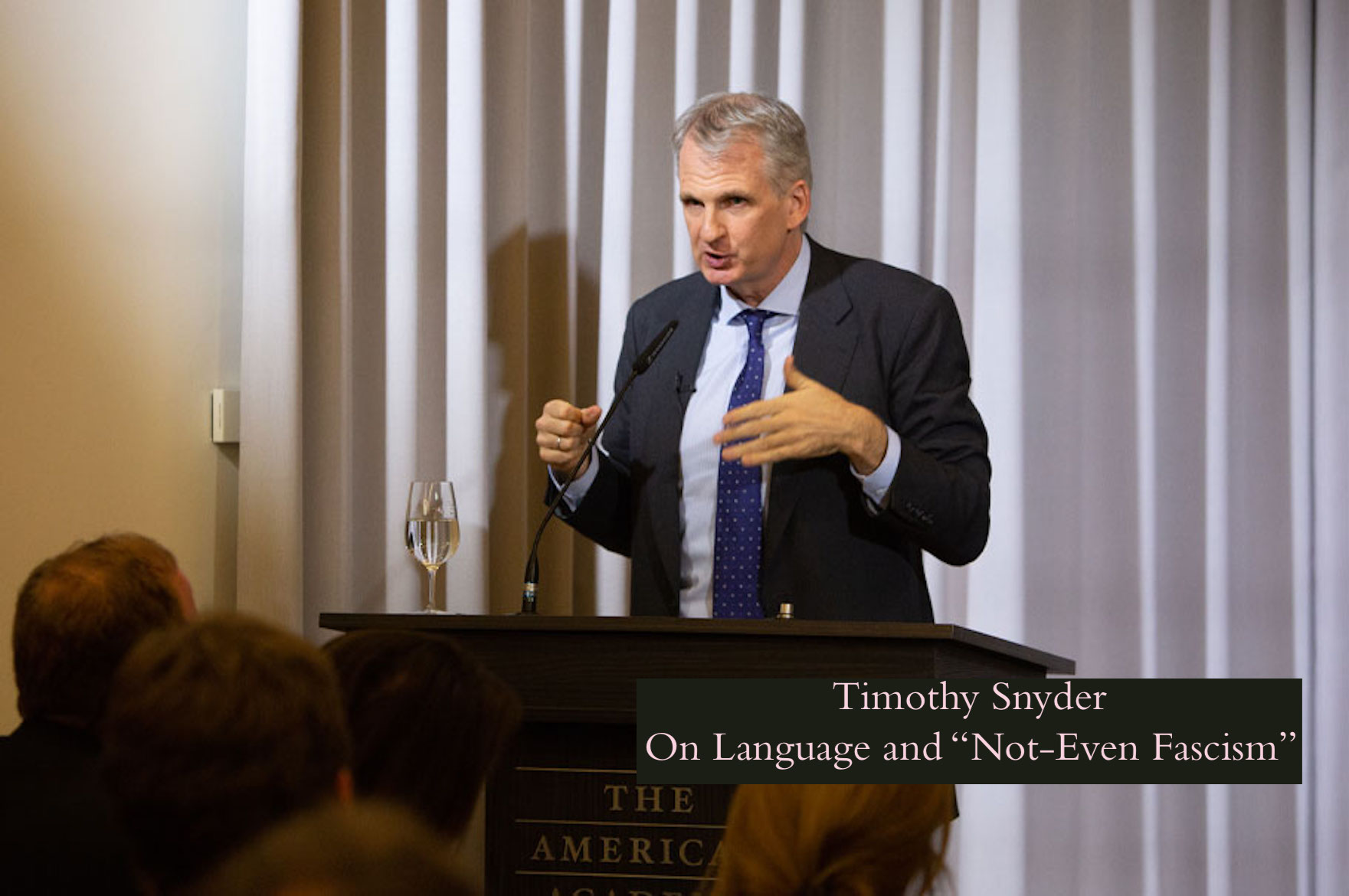On a dark and cold Winter’s day I travelled to the very west of Berlin, to Wannsee. I had my little walkman with me. I wanted to record another Letter from Berlin. The walkman stopped working, and it got back into a short-lived existence when I stood on the platform of the S-Bahn station, waiting for the train to get back home.
I wanted to record impressions and parts of Timonthy Snyder’s lecture at the American Academy in Berlin.
You can read a résumé of the evening on the website of the Academy. It starts like this:
“How did we enter the contemporary world of polarizing politics and encroaching authoritarianism? All seemed fine after the Wall fell and communism disintegrated—until it was fine no longer. Yale historian Timothy Snyder thinks we in the West became unreflective, and lazy in our use of language. Speaking at the American Academy in Berlin on January 14, at an event co-hosted with Intelligence Squared Germany, Snyder said that authoritarian ways of thinking have actually been enabled by liberal ways of thinking that discredited commonsensical truth, diminished the significance of the state, and refused to admit alternatives to the liberal way of seeing the world.
The idea of the “end of history,” bandied about thirty years ago, is particularly aggravating to Snyder. He says it blinded us to the vagaries and complex changes of the past, and “without history, we also lose responsibility for shaping the future. […] We no longer see that because all things were possible that all things are still possible.” That leads to what he calls a “politics of inevitability,” which blithely assumed that things would keep progressing the way they were, and that the future would be better than the past.”
Go here to read and see more.
I can highly recommend Timothy Snyder’s lectures. Look here if there will be one near you.
You want to submit your works or tapes/CDs/Vinyls released by you or your label?
Learn how to submit.
*
Please check
the Schedule
for broadcast hours/days
The most modest fundraising campaign you can imagine





You must be logged in to post a comment.